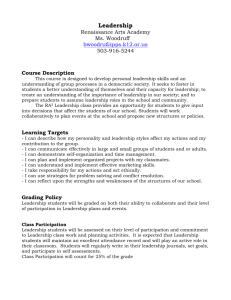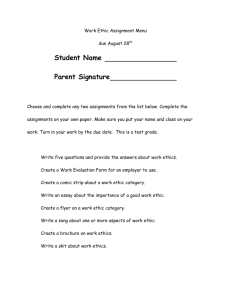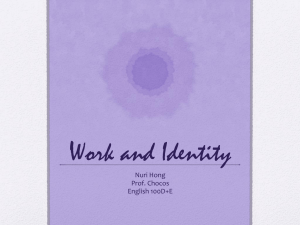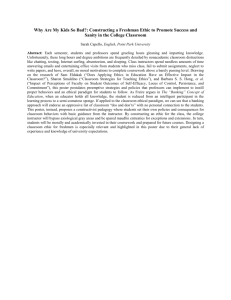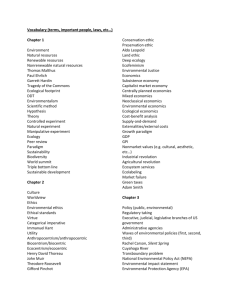Life Skills Rubric Approved 4/4/2008
advertisement
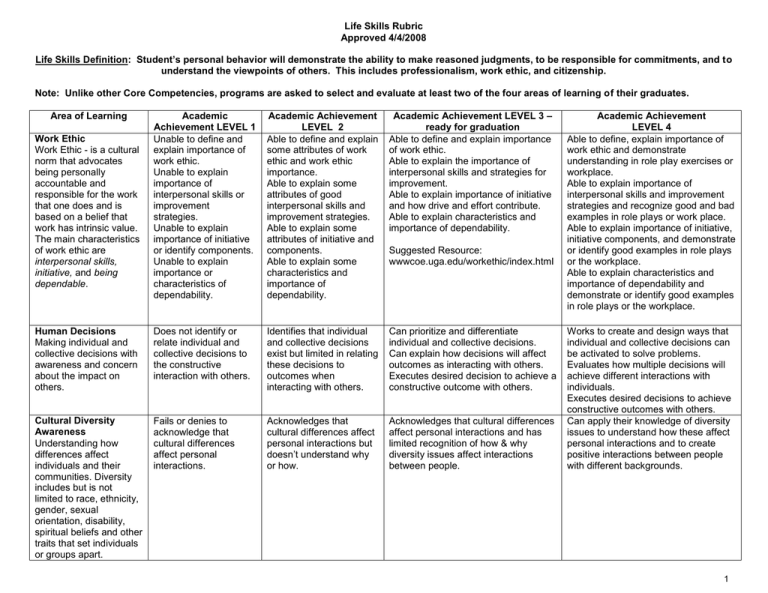
Life Skills Rubric Approved 4/4/2008 Life Skills Definition: Student’s personal behavior will demonstrate the ability to make reasoned judgments, to be responsible for commitments, and to understand the viewpoints of others. This includes professionalism, work ethic, and citizenship. Note: Unlike other Core Competencies, programs are asked to select and evaluate at least two of the four areas of learning of their graduates. Academic Achievement LEVEL 1 Unable to define and explain importance of work ethic. Unable to explain importance of interpersonal skills or improvement strategies. Unable to explain importance of initiative or identify components. Unable to explain importance or characteristics of dependability. Academic Achievement LEVEL 2 Able to define and explain some attributes of work ethic and work ethic importance. Able to explain some attributes of good interpersonal skills and improvement strategies. Able to explain some attributes of initiative and components. Able to explain some characteristics and importance of dependability. Academic Achievement LEVEL 3 – ready for graduation Able to define and explain importance of work ethic. Able to explain the importance of interpersonal skills and strategies for improvement. Able to explain importance of initiative and how drive and effort contribute. Able to explain characteristics and importance of dependability. Human Decisions Making individual and collective decisions with awareness and concern about the impact on others. Does not identify or relate individual and collective decisions to the constructive interaction with others. Identifies that individual and collective decisions exist but limited in relating these decisions to outcomes when interacting with others. Can prioritize and differentiate individual and collective decisions. Can explain how decisions will affect outcomes as interacting with others. Executes desired decision to achieve a constructive outcome with others. Cultural Diversity Awareness Understanding how differences affect individuals and their communities. Diversity includes but is not limited to race, ethnicity, gender, sexual orientation, disability, spiritual beliefs and other traits that set individuals or groups apart. Fails or denies to acknowledge that cultural differences affect personal interactions. Acknowledges that cultural differences affect personal interactions but doesn’t understand why or how. Acknowledges that cultural differences affect personal interactions and has limited recognition of how & why diversity issues affect interactions between people. Area of Learning Work Ethic Work Ethic - is a cultural norm that advocates being personally accountable and responsible for the work that one does and is based on a belief that work has intrinsic value. The main characteristics of work ethic are interpersonal skills, initiative, and being dependable. Suggested Resource: wwwcoe.uga.edu/workethic/index.html Academic Achievement LEVEL 4 Able to define, explain importance of work ethic and demonstrate understanding in role play exercises or workplace. Able to explain importance of interpersonal skills and improvement strategies and recognize good and bad examples in role plays or work place. Able to explain importance of initiative, initiative components, and demonstrate or identify good examples in role plays or the workplace. Able to explain characteristics and importance of dependability and demonstrate or identify good examples in role plays or the workplace. Works to create and design ways that individual and collective decisions can be activated to solve problems. Evaluates how multiple decisions will achieve different interactions with individuals. Executes desired decisions to achieve constructive outcomes with others. Can apply their knowledge of diversity issues to understand how these affect personal interactions and to create positive interactions between people with different backgrounds. 1 Global Awareness Understanding how groups, cultures, nations and interactions between civilizations are interconnected and change, and how individuals are involved in these processes. Fails or denies to acknowledge the interdependence and interrelatedness of all people and their environment. Acknowledges that global interdependence and interrelatedness are important, but doesn’t understand why or how. Acknowledges that global interdependence and interrelatedness are important and has limited recognition of how & why global interdependence and interrelatedness affect all people and their environment. Can apply their knowledge of global issues to understand how these affect all people and their environment. 2
